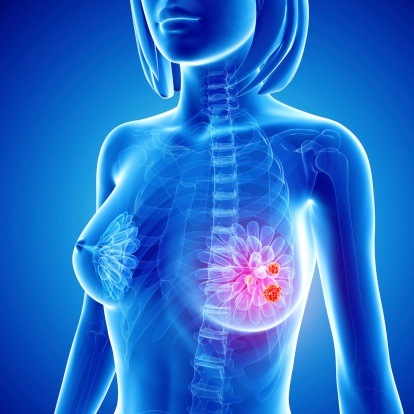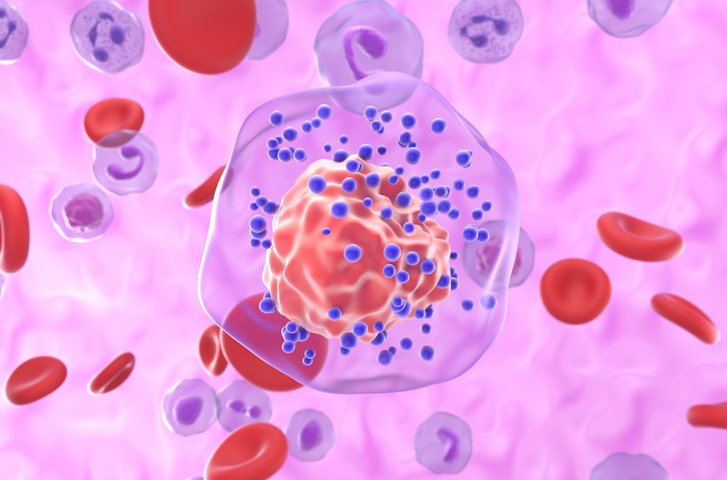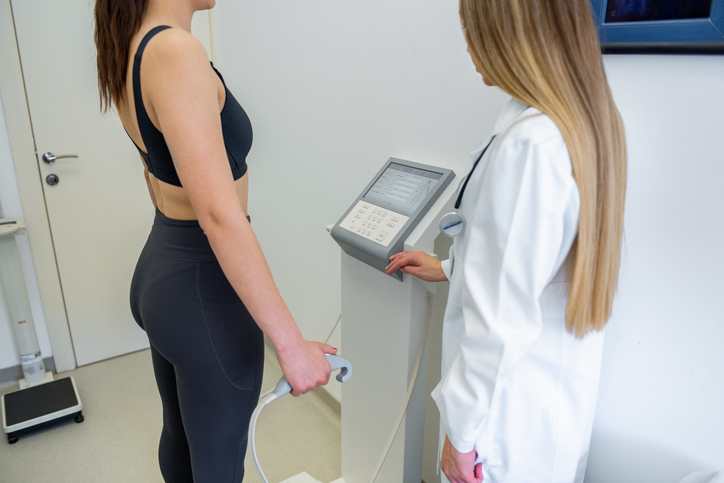- Breast Cancers Today
- Gastro Today
- Heme Today
- Anemia
- Deep Vein Thrombosis
- Essential Thrombocythemia
- Hemophilia
- Immune Thrombocytopenic Purpura
- Myelodysplastic Syndromes
- Myelofibrosis
- Myeloproliferative Neoplasms
- PNH
- Polycythemia Vera
- Pulmonary Embolism
- Sickle Cell Disease
- Thrombocytopenia
- Thrombophilia
- Thrombosis
- Thrombotic Thrombocytopenic Purpura
- Venous Thromboembolism
- von Willebrand Disease
- Anemia
- Metabolic Care Today
- Nephrology Times
- Sleep
- More
Katie Kosko
Articles by Katie Kosko
Katie KoskoIgA Nephropathy | May 20, 2025
A study found low rates of IgAN in the EU, but lower biopsy rates during the COVID-19 pandemic may have delayed diagnoses.Katie KoskoIgA Nephropathy | May 19, 2025
Nefecon can safely be used to treat severe renal impairment and lowers proteinuria in patients with IgAN.Katie KoskoHR Breast Cancer | May 16, 2025
Imlunestrant plus abemaciclib improved PFS across subgroups in ER+/HER2- breast cancer, per EMBER-3 data. Katie KoskoHR Breast Cancer | May 16, 2025
Abemaciclib plus fulvestrant showed benefit across biomarkers after CDK4/6i failure in advanced HR+/HER2- breast cancer.Katie KoskoHR Breast Cancer | June 17, 2025
T-DXd improved PFS and response rates vs chemo in HR+/HER2-low or -ultralow metastatic breast cancer in DESTINY-Breast06.Katie KoskoBreast Cancer News | May 15, 2025
Emiltatug ledadotin showed early clinical activity and was well tolerated in heavily pretreated patients with TNBC.Katie KoskoIgA Nephropathy | May 15, 2025
Proteinuria trajectory is a major predictor of disease progression in children and adults with IgAN, a study found.Katie KoskoHR Breast Cancer | May 16, 2025
Ribociclib plus ET shows similar pCR rates to chemo in intermediate-risk HR+/HER2– early breast cancer, per WSG ADAPTcycle.Katie KoskoIgA Nephropathy | May 14, 2025
Several genetically predicted environmental factors increase the risk of IgAN and membranous nephropathy, a study found.Katie KoskoHER2 Breast Cancer | May 12, 2025
Higher fat mass and lower fat density linked to increased T-DXd dose reductions and toxicity in metastatic breast cancer.Katie KoskoHER2 Breast Cancer | May 12, 2025
Pembrolizumab plus dual HER2 blockade may offer a chemo-free option for early HER2+ breast cancer, phase 2 data suggest.Katie KoskoNon-Small Cell Lung Cancer | July 10, 2025
The phase 3 global, multi-center trial included 492 patients with stage IV NSCLC.Katie KoskoNon-Small Cell Lung Cancer | July 10, 2025
Nivolumab plus ipilimumab with chemotherapy also helped patients with brain metastases live longer versus chemotherapy alone.Katie KoskoNon-Small Cell Lung Cancer | July 10, 2025
Researchers used data from the Thoracic Tumors Registry to conduct 2 analyses using artificial intelligence.Katie KoskoLung Cancer | August 29, 2024
The intervention included psychoeducation, relaxation training, and behavioral techniques for managing acute breathlessness.Katie KoskoNon-Small Cell Lung Cancer | July 10, 2025
Researchers addressed the limited data comparing relative outcomes among osimertinib, afatinib, and erlotinib.Katie KoskoNon-Small Cell Lung Cancer | July 10, 2025
The analysis supplements the primary report and shows that selpercatinib may prevent the formation of new CNS metastases.Katie KoskoNon-Small Cell Lung Cancer | July 10, 2025
Researchers uncovered an association between survival and intratumoral Escherichia in patients receiving certain therapies.Katie KoskoASCO 2024: Focus on Lung Cancer | July 30, 2024
Researchers say the results support the evaluation of the treatment in the phase 3 CodeBreaK 202 trial. Katie KoskoNon-Small Cell Lung Cancer | July 10, 2025
The study included patients who had received a diagnosis of stage IIA-III unresectable NSCLC. © 2025 Mashup Media, LLC, a Formedics Property. All Rights Reserved.
© 2025 Mashup Media, LLC, a Formedics Property. All Rights Reserved.




















